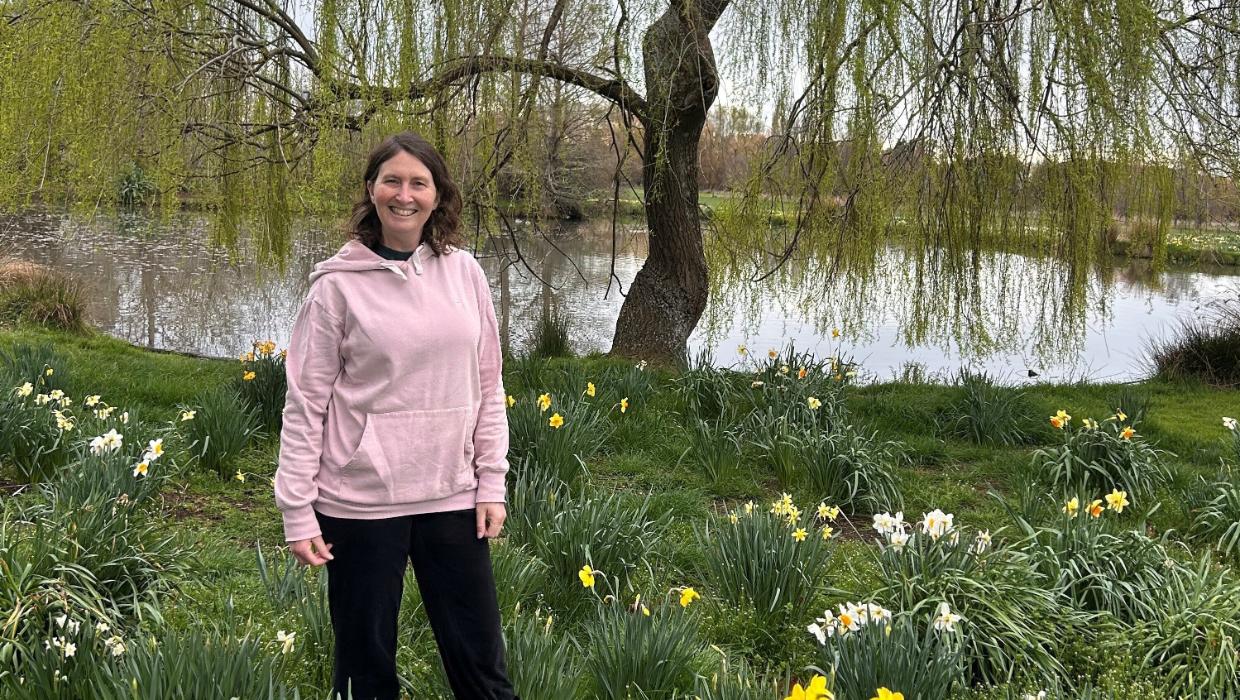Health
Woman’s Early Detection Journey Highlights Importance of Mammograms

A routine mammogram can sometimes lead to unexpected outcomes, as illustrated by the experience of Julie Haines, a resident of Havelock North. After receiving a clear result from her mammogram in November 2024, Haines was diagnosed with breast cancer just three weeks later. Her story serves as a crucial reminder of the importance of regular screenings and self-awareness regarding breast health.
Haines emphasizes the necessity of regular mammograms, stressing that they are life-saving procedures. For women aged between 45 and 69, these screenings are provided free of charge in New Zealand. Despite her initial all-clear, Haines discovered a tumour that was not visible due to her dense breast tissue. “I truly believed I was fine, I was so shocked,” she reflected. “The tumour would have been there, but because of my dense tissue it didn’t show up.”
Her journey began a year prior when, at the age of 51, she noticed a dimpled appearance in one breast while applying deodorant. Despite having no family history of breast cancer, the sight prompted her to consult a specialist. Although the initial examination did not reveal any concerns, the specialist informed her about her dense breast tissue and recommended an ultrasound for her next routine mammogram.
“There’s a higher chance of getting breast cancer if you have dense breast tissue, but a lower chance of it being picked up on a mammogram,” the specialist explained. Haines proceeded with her regular mammogram in November, which returned normal results. However, she received a referral for an ultrasound the following day, a procedure not routinely covered by the public system, meaning she would need to pay out of pocket.
Scheduled just before Christmas, Haines faced a decision on whether to proceed with the ultrasound. Ultimately, she chose to pursue it, focusing on the breast where she had previously noticed the dimpling. “It was sheer luck I chose the right one,” she stated.
The ultrasound confirmed her fears when the technician began marking her breast, leading to a subsequent biopsy. “The only time I cried was when I left that ultrasound,” Haines recounted, adding that the diagnosis, though frightening, came with the reassurance that it was treatable and had been caught early.
Haines underwent surgery in January 2025 to remove the tumour and began radiation treatment in March. She is currently on Tamoxifen, a medication that blocks cancer cells from utilizing estrogen to grow. Despite her ordeal, Haines expressed a sense of disbelief at her situation: “I almost considered myself a cancer fraud because I didn’t need chemo.”
Her experience highlights the critical role of early detection in breast cancer treatment. If Haines had not sought medical advice after noticing the dimpling, her cancer might have gone undetected until her next mammogram, potentially leading to a much more serious situation.
In light of Haines’ story, Natalie James, lead nurse at the Breast Cancer Foundation NZ, emphasized the importance of early detection and self-awareness. Since the introduction of Aotearoa’s free screening program in 1998, women have seen a 34% reduction in breast cancer mortality rates. James advocates for a dual approach: regular mammograms combined with personal knowledge of one’s own breast health.
“Some breast cancers are diagnosed between regular mammograms, so we push ‘know your normal’,” James explained. Understanding what is typical for one’s breasts helps in identifying any changes that may warrant further checks. Breasts can change in appearance and sensitivity during the menstrual cycle, so regular self-examinations can be beneficial.
For those interested in a more systematic approach to self-checking, resources like videos and diagrams are available on the Breast Cancer Foundation’s website. James reassured women who may feel anxious about the mammogram process, stating, “Even if you have worries, you should give it a go.”
Haines’ story serves as a powerful reminder of the importance of being proactive about breast health. Regular screenings and self-awareness can make a significant difference in outcomes, potentially saving lives.
-

 World3 months ago
World3 months agoTest Your Knowledge: Take the Herald’s Afternoon Quiz Today
-

 Sports3 months ago
Sports3 months agoPM Faces Backlash from Fans During Netball Trophy Ceremony
-

 Lifestyle3 months ago
Lifestyle3 months agoDunedin Designers Win Top Award at Hokonui Fashion Event
-

 Sports3 months ago
Sports3 months agoLiam Lawson Launches New Era for Racing Bulls with Strong Start
-

 Lifestyle3 months ago
Lifestyle3 months agoDisney Fan Reveals Dress Code Tips for Park Visitors
-

 World3 months ago
World3 months agoCoalition Forms to Preserve Māori Wards in Hawke’s Bay
-

 Health3 months ago
Health3 months agoWalking Faster Offers Major Health Benefits for Older Adults
-

 Politics3 months ago
Politics3 months agoScots Rally with Humor and Music to Protest Trump’s Visit
-

 Top Stories3 months ago
Top Stories3 months agoUK and India Finalize Trade Deal to Boost Economic Ties
-

 World3 months ago
World3 months agoHuntly Begins Water Pipe Flushing to Resolve Brown Water Issue
-

 Entertainment3 months ago
Entertainment3 months agoExperience the Excitement of ‘Chief of War’ in Oʻahu
-

 Science3 months ago
Science3 months agoNew Interactive Map Reveals Wairarapa Valley’s Geological Secrets









